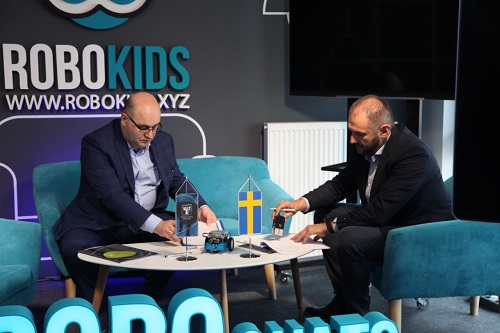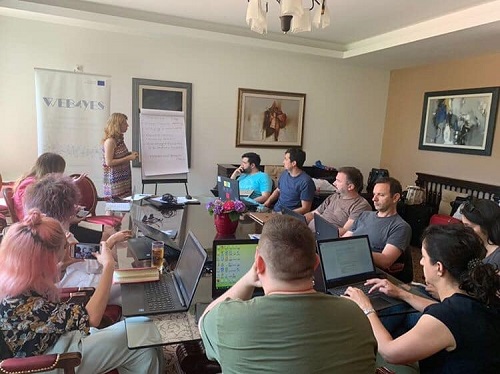EXIT Center, Center for supporting IT businesses from Banja Luka will continue improving STEM literacy in children and youth. The STEM approach will teach children and youth critical thinking in the fields of science, technology, engineering and mathematics (STEM).
Today, a grant agreement was signed by Mr. Zoran Gajić, Director of the EXIT Centre and Mr. Jasmin Bešić, Director of the Institute for Youth Development KULT, for supporting this project with 183 thousand BAM. With funds from the Embassy of the Kingdom of Sweden in BiH and the support of the Institute, EXIT Center will train at least 150 children and youth aged 7-18 in STEM subjects during two-month and four-month educational programs, and thirty young people will retrain to work digital jobs. The project will promote STEM educational programs for users, with a minimum of 50 events in the following 12 months.
This will ensure that children and youth are trained for 21st century jobs. They will take part in educational programs that are not part of the mainstream curricula in primary and secondary schools, or at universities, to encourage interest in STEM subjects. STEM fields, which include IT, contribute to generating jobs in all sectors, they improve the GDP, give rise to new industries and services, transform the labour force, encourage entrepreneurship and business innovation. STEM fields affect all aspects of our lives, which makes it supremely important. High-quality STEM experiences develop critical thinking skills, improve technological literacy and produce the next generation of innovators.

The STEM-based curricula include real-life situations that help participants learn. In the 21st century, scientific and technological innovations become increasingly more important, as we tackle the challenges and take advantage of opportunities provided by globalization and knowledge-based economy.
STEM centers such as the EXIT Center offer streamlined ways, outside of formal education, to learn about new technologies and thus play important role in efficiently promoting STEM fields. Parallel education designed to complement formal curricula is a good way for young people to enter the STEM arena, learn about new trends worldwide and fill the gaps left by formal education.















Ostavi komentar